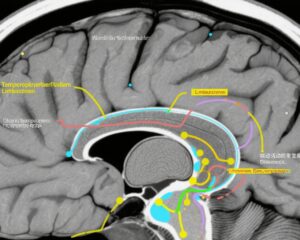Highlight
- Both higher- and low-calorie diets, when combined with adequate exercise, associate with reduced all-cause mortality.
- Higher calorie intake with adequate exercise confers greater survival benefits than a low-calorie diet with equivalent exercise.
- Only higher calorie intake plus adequate exercise shows a significant reduction in cardiovascular mortality.
- No significant mortality benefit was observed for cancer deaths relative to calorie intake and exercise variations.
Study Background and Disease Burden
The quest for optimal dietary and exercise guidelines is central to reducing mortality from all causes and specific chronic diseases such as cardiovascular disease and cancer. Caloric restriction has been proposed for longevity benefits primarily based on animal models, yet its effects in humans remain equivocal. Conversely, adequate physical activity is well established as a protective factor against mortality and cardiometabolic diseases. This study investigates the interplay between calorie intake and exercise, specifically probing whether higher calorie intake combined with sufficient exercise may yield mortality benefits compared with low-calorie diets with similar exercise levels.
Study Design
This observational cohort study analyzed data from the National Health and Nutrition Examination Survey (NHANES) spanning 21,618 participants with a female representation of 51%. Median follow-up time was 6.75 years. The study categorized participants into groups based on calorie intake (higher versus low) and adequacy of exercise according to contemporary 2020–2025 Dietary Guidelines for Americans. Outcomes evaluated were all-cause, cardiovascular, and cancer mortality. Weighted multivariate Cox proportional hazards regression assessed mortality risk associations. Interaction effects between calorie intake and exercise were quantified via relative excess risk of interaction (RERI), attributable proportion of interaction (API), and synergy index (SI). Comprehensive subgroup and sensitivity analyses were conducted to validate robustness.
Key Findings
During follow-up, 1,957 deaths from all causes, 568 cardiovascular deaths, and 508 cancer deaths occurred. Both higher- and low-calorie diet groups that engaged in adequate exercise had significantly reduced all-cause mortality risks compared with their less active counterparts. Specifically, the higher-calorie plus adequate exercise group exhibited a hazard ratio (HR) of 0.59 (95% CI: 0.48–0.71; P < 0.001) for all-cause mortality, indicating a 41% reduction in death risk. The low-calorie plus adequate exercise group also showed benefit with an HR of 0.69 (95% CI: 0.56–0.84; P < 0.001).
Importantly, only the higher-calorie intake with adequate exercise group showed a statistically significant association with reduced cardiovascular mortality (HR 0.64, 95% CI: 0.43–0.94, P = 0.022), whereas no such association was observed with the low-calorie diet group or cancer mortality across all groups. Interaction analyses revealed no additive synergy between low-calorie diet and adequate exercise in reducing mortality, indicating independent rather than synergistic effects.
Subgroup analyses by age, sex, BMI, and other covariates yielded consistent results, while sensitivity analyses confirmed the stability of findings.
Expert Commentary
This large nationally representative study provides compelling evidence that adequate physical activity is key to mortality reduction, irrespective of caloric intake level. The superior survival benefit linked to higher calorie intake with exercise may reflect that sufficient energy availability supports physiological resilience and cardiovascular function during activity. This challenges the prevailing emphasis on calorie restriction for longevity in humans.
Limitations include the observational nature precluding causality and potential residual confounding such as dietary quality, unmeasured comorbidities, or exercise intensity details. Nonetheless, the analytical rigor including interaction metrics and multiple sensitivity checks strengthens confidence in these findings.
From a mechanistic perspective, adequate exercise likely modulates cardiometabolic health substantially. Higher calorie intake might support anabolic and repair processes necessary for cardiovascular endurance and prevent frailty, which could explain the distinctive cardiovascular mortality benefit. Lack of observed effect on cancer mortality could relate to complex oncogenic pathways less influenced by calorie quantity alone.
Conclusion
This NHANES-based observational study underscores the critical role of adequate exercise combined with calorie intake in mortality reduction. Both higher- and low-calorie diets benefit all-cause mortality when paired with adequate exercise, with higher calorie intake conferring greater advantage, particularly for cardiovascular mortality. These data support personalized nutritional and physical activity strategies emphasizing sufficient energy intake aligned with physical activity levels rather than strict caloric restriction.
Integration of exercise guidelines with tailored dietary advice could refine public health recommendations, aiming to optimize lifespan and cardiovascular health. Further prospective studies and randomized controlled trials are warranted to elucidate causality and mechanisms underlying these associations.
References
Gan H, Yan Y, Jia S, Guo Y, Lu G. Higher calorie intake with adequate exercise is associated with reduced mortality compared with low-calorie diet with equivalent exercise: An observational study from NHANES based on the 2020-2025 Dietary Guidelines for Americans. Exp Gerontol. 2025 Sep;208:112805. doi: 10.1016/j.exger.2025.112805. Epub 2025 Jun 14. PMID: 40523541.



